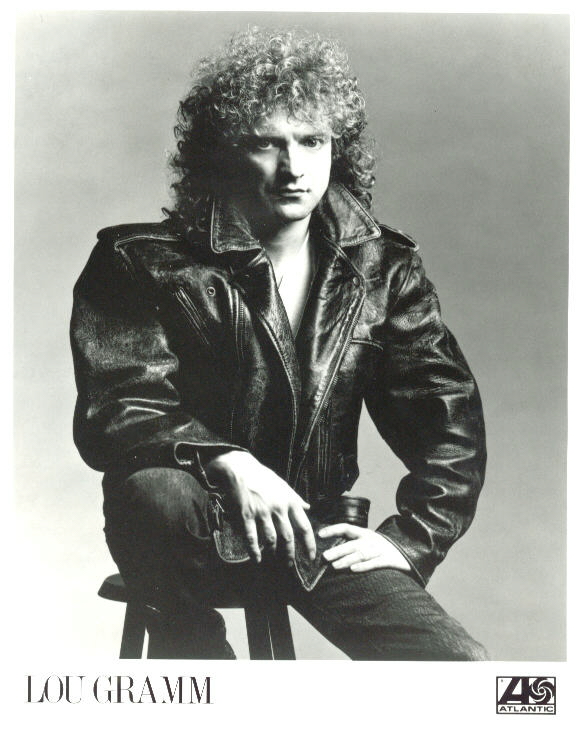 |
| LOU GRAMM |
| THE DEFINITIVE VOICE IN MUSIC |
 |
| Lou Gramm, the definitive voice in music today and the voice of Foreigner was born in Rochester, New York. His family was rooted in music and therefore it was inevitable that he would carry the torch. His father was a trumpet player in his own band during the 1940's while his mother was the singer. In his early years, Lou's taste in music didn't exactly coincide with the music his parents were performing. Lou was listening to the likes of Elvis, Buddy Holly, and The Everly Brothers. At the age of eight, Lou began playing drums. He was now listening to some pretty good rock'n'roll fromThe Ventures and Duane Eddy. Duane Eddy would later play lead guitar on the Foreigner ballad "Until the End of Time". To keep the peace in the house, Lou's dad woul;dcome down to the basement when Lou played his drums and break out the trumpet. Together they'd play some tunes from The Dorsey Brothers and other tunes. Lou's older brother Ben, also started playing drums. Even though Ben began after Lou, he soon was able to play betterand even got into a band which frustrated Lou. He started taking "group" lessons with otherdrummers and even though he knew he was better than they were, he couldn't get into a band. While wqaiting for his age to catch up to his ability, lou's taste in music expanded. The major influence was the Motown sound followed by the Beatles. Finally at the age of 15, Lou joined his first band. He sang background vocals besides being the drummer. The band played "louie Louie" which Lou got to sing lead on. After finishing high school, Lou hooked up with a local Rochester band called Poor Heart. They mostly played top 40 songs. Oddly enough, the band already had a drummer, so Lou became the lead singer. He got tired and frustrated singing covers and wanted to develop his own style and songs. He eventually quit Poor Heart and got back to playing drums. During this time, Lou started listening to Free, Humble Pie, and Traffic. His style of singing started to change. In 1970, the band Black Sheep was formed. It would rather ironic in years to come, but the first person Lou recruited for Black Sheep wa future Foreigner bassist Bruce Turgon. Bruce had been playing bass for one of the bands that rivaled Poor Heart. Lou's younger brother Richard played guitar.. Now that his days with Poor Heart had ended, Lou was able to begin to write his own music. It was difficult to play drums and sing, so a new drummer was found. The people that booked Black Sheep insisted they play the top ten songs. Black Sheep had other ideas. They told the bookers no problem, just to get the work. When they got onstage it was a whole different ballgame. The kids went crazy for them and made most of their shows look like full blown concerts/ Many nights Black Sheep would get thrown out of the dance clubs with no pay for turning the dance halls into a concert hall. Black Sheep eventually cut 2 albums, "Encouraging Words", and "Black Sheep". A traffic accident destroyed all their equipment after opening for Kiss one night and that was more or less the end of Black Sheep. There was no money to replace the equipment and then another turn for the worse happened. They lost their record contract. With the end of Black Sheep in site, Lou went on welfare. He managed to get a job cleaning the judges chambers in the public safety building in Rochester. Then one night, a phonecall changed his life. Mick Jones, the former guitar player for the nband Spooky Tooth, was putting a new band together. Mick had listened to Black Sheep's albums and wanted Lou to sing in his new band Foreigner. Initially, Lou turned him down as he wanted to develop Black Sheep. He told Mick he'd think about it and told Black Sheep that Mick wanted him to be in the new band. The guys in Black Sheep couldn't believe Lou turned the opportunity down and told him to go for it. The rest is history! |
| Copyright Atlantic Records |
| Atlantic Records and Bruce Pilato Contributed to this article |